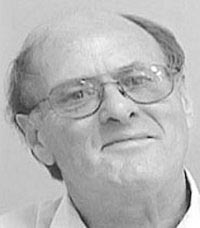Cayman’s earliest settlers would have come by boat – some time in the early 1600s – from Jamaica or Cuba. There is no evidence of any aboriginal inhabitants, so the first comers would have been European and African refugees from one sort of slavery or another. They were either adventurous or desperate, or both – as indeed were most expats in history and pre-history.
The spirit of adventure lasted during the whole of Cayman’s history until just a few decades ago – at least among the men. Fishermen spread their seed throughout the western Caribbean. The Bay Islands of Honduras, Cuba’s Isle of Pines, the Mosquito Coast of Nicaragua, several towns along America’s Gulf Coast from Texas to the Florida Keys – all have native-born residents whose surnames betray their Caymanian or Jamaican ancestry.In the 20th Century, US merchant-ships welcomed Caymanian sailors, and not just because they were non-union. The sea was in their blood, and so was the desire to experience a different life. Not any more, sadly. Today there is a wide cultural gap between the old-timers and their grandchildren. The spirit of adventure has passed on without stopping, and has probably been lost forever in these Islands.
It has been replaced by the same spirit that created the ghettoes in so many Western cities – the spirit of dependence and entitlement. Why venture outside one’s home environment to work, when the state will pay you to stay put? In Cayman, the question is: why venture outside your familiar community when the authorities will force employers to hire and promote you, and forbid them from firing you?
In a blog-post last March (Leaving Home), I deplored this culture of entitlement. “There is much virtue in experimenting with new homes, and passing up a life of safety”, I wrote. The words were addressed to native (ethnic) Caymanians, but it applies equally to the children of Cayman’s middle-class immigrants. Given the right to stay permanently, most of the children gain access to the entitlement. They relax and enjoy what is one of the most comfortable of life-styles in the world. And fair enough, eh? Why not?
I believe it’s a strategic mistake. Ease and safety is fine for oldies, but they shouldn’t be the first resort of the young and agile.
Expat readers of this column ought to agree with that sentiment. After all, they are young and agile themselves – as I was, when my mother pushed me out the door fifty years ago and onto a ship bound for London, ten thousand miles away. Actually, I had been indoctrinated since the age of seven. Her father introduced me to stamp-collecting, and it became an article of faith that I would one day try to visit all the countries whose stamps I had. (I made it to less than half, before I settled down to become a loving father in a stable home.)
My wife has been with me on most of my adventures. We met at a Greek Youth Hostel in 1964 – a story briefly told in my Zorba the Greek blog of January 2012. Our son spent his first fifteen months in our Kombi van between High Wycombe and Corfu Town. When he grew up I did to him what my mother did to me; and I think it was the right thing.
Washing car engines for a dollar an hour led (it’s a long story) to a job as a professional model in Mexico City for a hundred times as much. Managing a hostel on Lake Atitlan in Guatemala was another adventure, another challenge. Constructing and dismantling concert stages in Norway led to a job with the national theatre company. Then he, too, settled down to do his duty as a loving father.
What chance to his Norwegian children have, to dodge the challenge of expatriate life? Not much. Sure, they are strong Norwegian patriots now, and their nation’s entitlement culture is seductive. But mere patriotism probably won’t be enough to keep them tethered for long.
Gordon Barlow has lived in Cayman since 1978. He was the first full-time Manager of the Cayman Islands Chamber of Commerce (1986-1988) – a turbulent period when the Chamber struggled to establish its political independence. He has publicly commented on social and political issues since 1990, and has represented the Chamber at several overseas conferences, and the Cayman Islands Human Rights Committee at an international symposium in Gibraltar in 2004. His blog www.barlowscayman.blogspot.com contains much information on life in Cayman, written from the point of view of a resident and citizen.
Read Gordon's other Expat Focus articles here.

